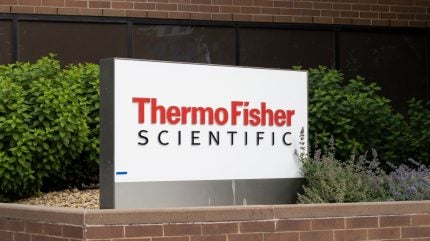

Thermo Fisher is cutting the headcount at two of its US facilities by 300 as the company continues to overhaul its viral vector manufacturing output.
Announcement of the layoffs was disclosed via a Worker Adjustment and Retraining Act (WARN) notification and indicates an effective date of 30 March. The locations where employees are being let go are in Cambridge and Plainville, both in Massachusetts. Both facilities specialise in viral vector development and manufacturing.

Discover B2B Marketing That Performs
Combine business intelligence and editorial excellence to reach engaged professionals across 36 leading media platforms.
A Thermo Fisher spokesperson told Pharmaceutical Technology: “In light of recent shifts in customer timelines and utilisation needs, we are making strategic business adjustments, including reduction of headcount at our Cambridge, Mass. and Plainville, Mass. sites.
“Decisions that impact our colleagues and their families are never taken lightly. All impacted colleagues will receive job transition support to aid them in finding new opportunities.”
The Plainville plant, a 300,000 square foot facility that cost $180m to build, was slated to employ 300 people when it opened in 2022. At the time, the site expanded on the five viral vector sites the company owned across the US and Europe.
The layoff notice comes less than three months after Thermo Fisher streamlined its viral vector manufacturing in the same two locations. The company cut a total of 160 jobs across the Cambridge and Plainville sites, as well as a third Massachusetts-based viral vector facility in Lexington. At the same time, Thermo Fisher closed the Lexington plant, a 380,000-square-foot site that was only opened three years ago.

US Tariffs are shifting - will you react or anticipate?
Don’t let policy changes catch you off guard. Stay proactive with real-time data and expert analysis.
By GlobalDataThermo Fisher benefitted from a growth in revenue due to higher drug manufacturing demand around the Covid-19 pandemic. The showpiece from those financially successful years was a $17.4bn acquisition of contract research organisation (CRO) PPD.
Weaker demand for drug manufacturing in recent years led to Thermo Fisher taking several cost-cutting initiatives, including cutting jobs at its plasmid manufacturing site in California, closing its biologics development and cell therapy services facility in New Jersey, and gene therapy facilities in Florida.
Thermo Fisher is not the only company to take a step back from the cell and gene therapy manufacturing space. Last week CDMO Rentschler Biopharma said it plans to shut down its UK manufacturing facility in Stevenage, affecting around 30 employees.
The latest layoff notice comes at a time when Thermo Fisher is demonstrating a financial turnaround. The company reported Q4 2024 revenue growth of 5% compared to the same period in 2023. Whilst full year revenue was flat, totalling $42.9bn, Thermo Fisher stemmed the drop in revenue seen between 2022 and 2023. At last month’s 2025 JP Morgan Healthcare Conference, CEO Marc Casper said the company is looking to strengthen its hold on the sterile fill-finish market after its competitor Catalent shifted away from this segment following its acquisition by Novo Nordisk. At the time, Casper said the company was confident about delivering robust earnings and further growth in 2025.
Cell & Gene Therapy coverage on Pharmaceutical Technology is supported by Cytiva.
Editorial content is independently produced and follows the highest standards of journalistic integrity. Topic sponsors are not involved in the creation of editorial content.



